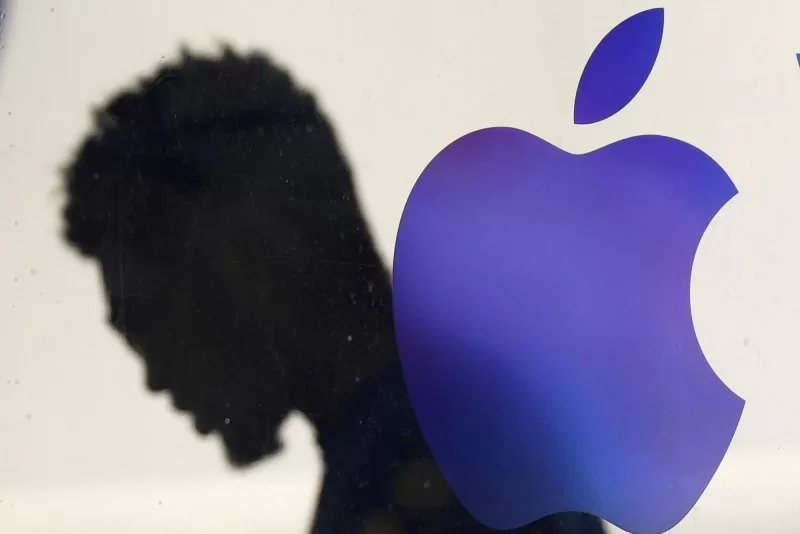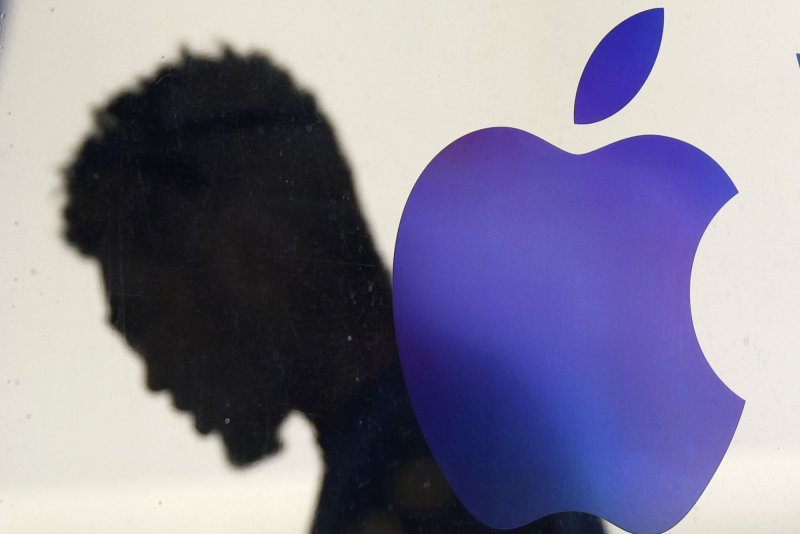1 of 3 | The Apple logo hangs outside of an Apple retail store in SoHo in New York City on Thursday. The U.S. Justice Department said it has joined with 16 other state and district attorneys general in filing a civil antitrust lawsuit against Apple for violating the Sherman Act with its monopolization of the smartphone market. Photo by John Angelillo/UPI |
License PhotoMarch 21 (UPI) — The U.S. Justice Department said on Thursday it has joined with 16 other state and district attorneys general in filing a civil antitrust lawsuit against Apple for violating the Sherman Act with its monopolization of the smartphone market.
The department filed the lawsuit in the New Jersey district court, charging that Apple illegally maintains its monopoly over smartphones with illegal contractual restrictions on, limiting access to, and undermining apps, products and services that would make others less reliant on iPhones.
Through its monopoly, Apple has been able to extract more money from customers and developers, the Justice Department said.
“Consumers should not have to pay higher prices because companies violate the antitrust laws,” Attorney General Merrick Garland said in a statement. “We alleged that Apple has maintained monopoly power in the smartphone market, not simply by staying ahead of the competition on the merits, but by violating federal antitrust law.”
Garland said without enforcement stepping in, Apple’s monopoly would only grow and stifle future developers while limiting consumer options.
“The Justice Department will vigorously enforce antitrust laws that protect consumers from higher prices and fewer choices,” Garland said. “That is the Justice Department ‘s legal obligation and what the American people expect and deserve.”
Garland and other plaintiffs have accused Apple of blocking innovative super apps to make it easier to switch platforms, suppressing mobile cloud streaming, excluding cross-platform messaging apps, diminishing the functionality of non-Apple smartwatches, and limiting third-party digital wallets.
“When corporations engage in anticompetitive conduct, the American people and our economy suffer,” Acting Associate Attorney General Benjamin Mizer, said in a statement. “Today’s action against Apple sends a strong signal to those seeking to box out competitors and stifle innovation.”
Kris Mayes, Arizona’s attorney general, was one of the state officers joining the Justice Department in its lawsuit against Apple.
“No company, even one as big as Apple, is above the law,” Mayes said in a statement. “Apple’s anticompetitive behavior has violated antitrust law and harmed consumers. Holding Apple accountable is critical to ensuring a competitive market where innovation can flourish and consumers can access a wide range of affordable products and services.”

